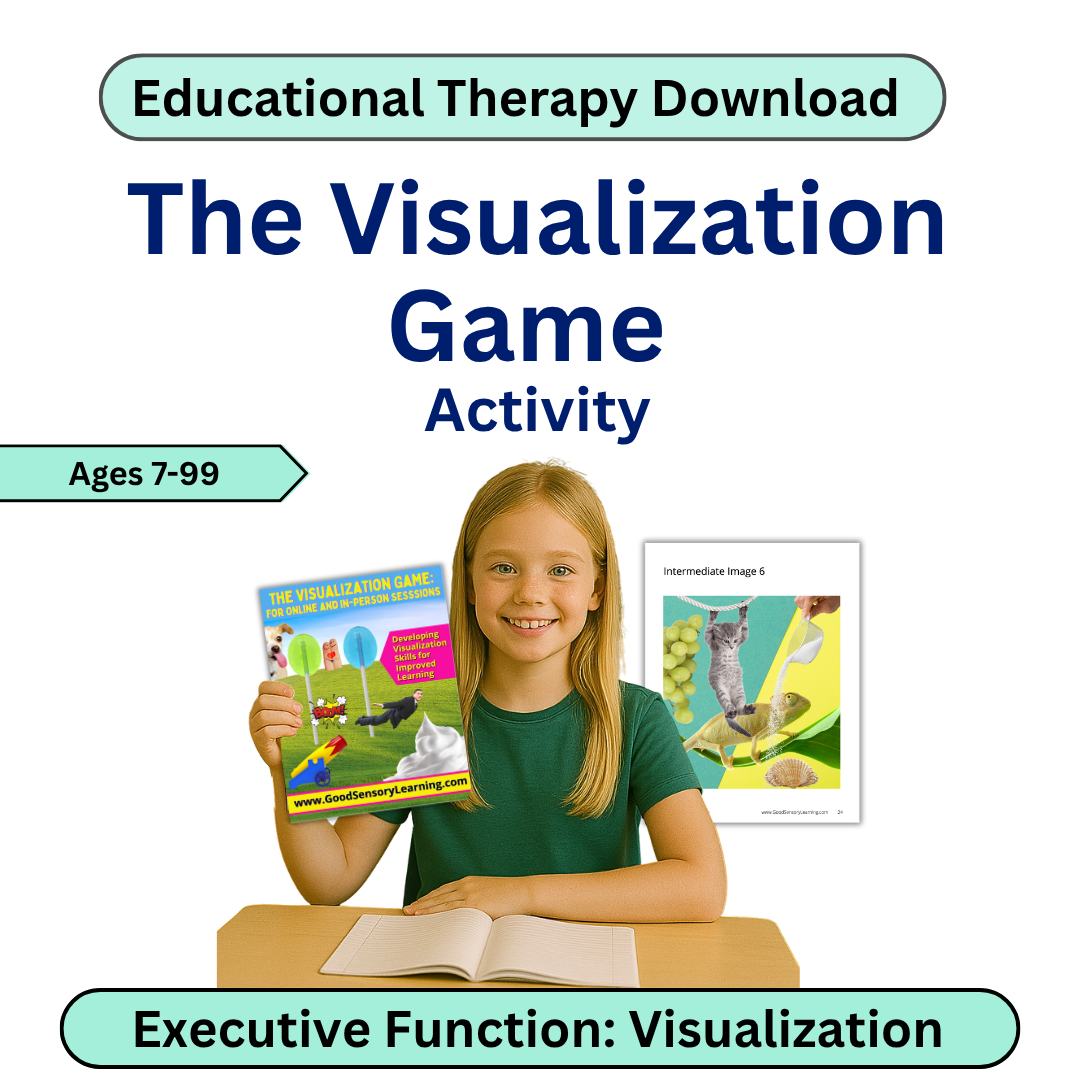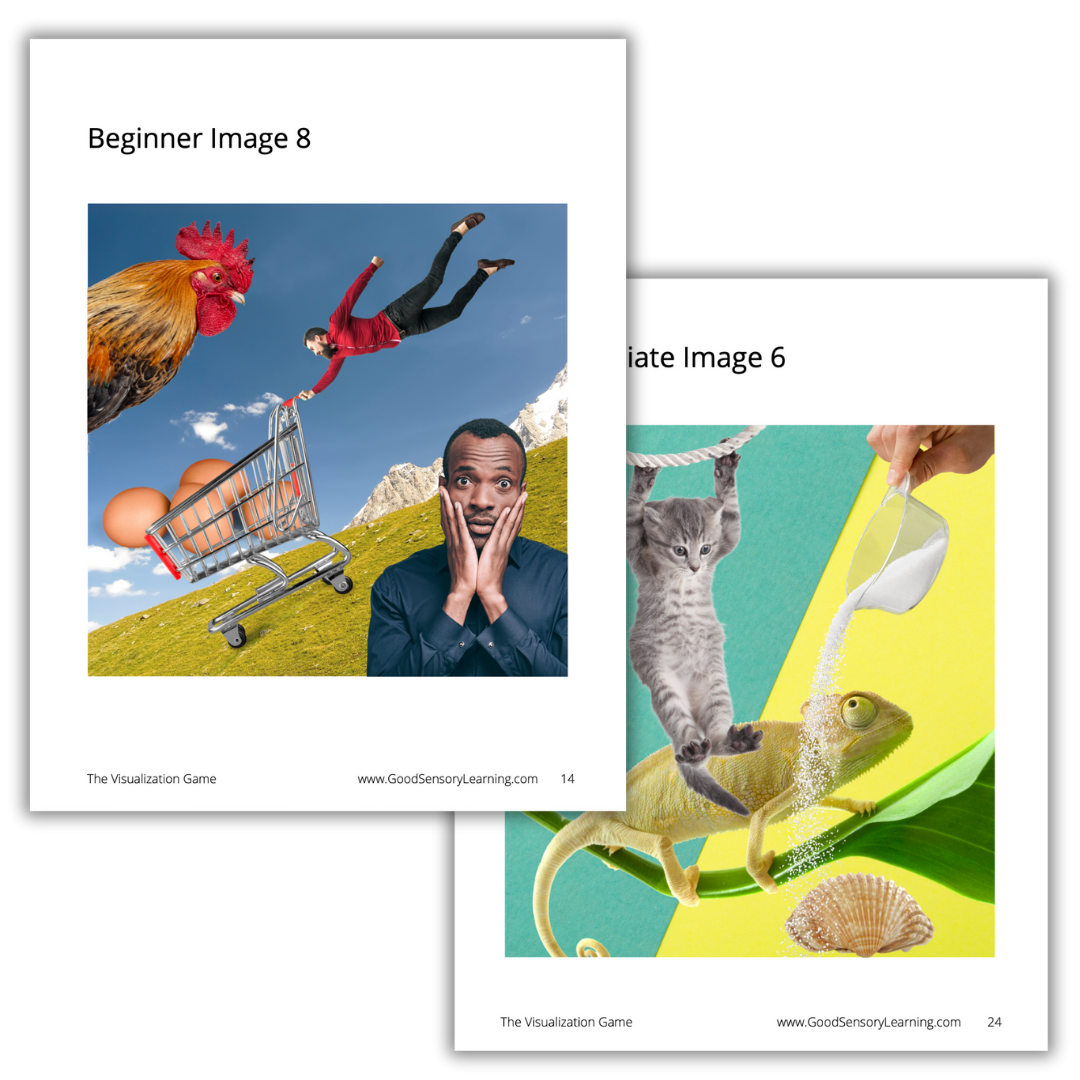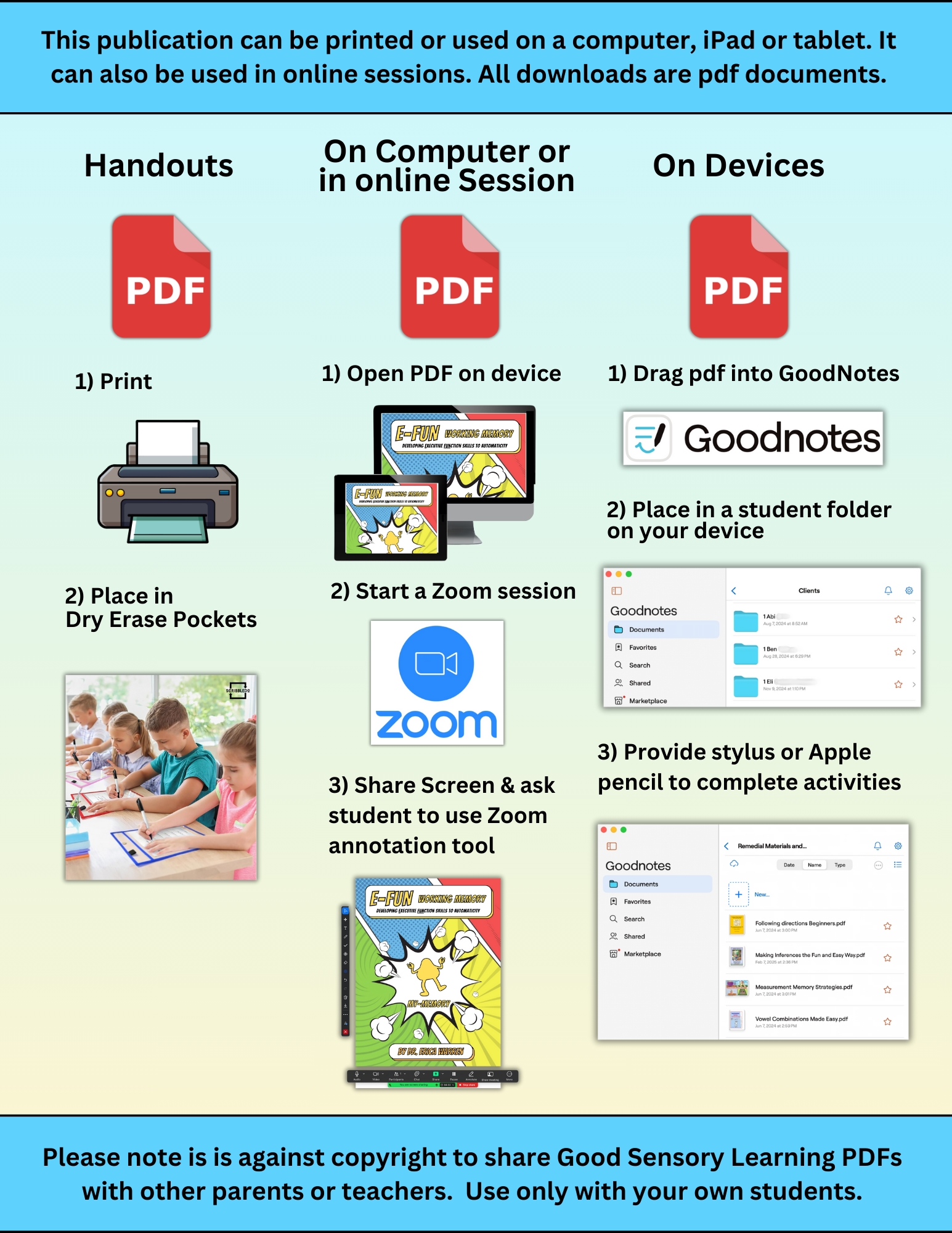Overview
The Visualization Game was created for kids and older learners who wish to strengthen visualization and memory skills, so they can improve their cognitive capabilities while having fun. Visualization involves self-generated mental imagery, and it is a key component of working memory. This is important, as research now suggests that working memory is one of the best indicators of academic success. In addition, the images were created to be amusing and odd and trigger a sense of creativity and humor. Laughter can result in a dopamine release in the brain, which can help learners build receptivity and enhance capabilities.
Those who struggle with visualization often have difficulty with:
- reading comprehension
- creative writing
- attentional skills
- memory at large
- listening skills
What Are Some Other Benefits of Visualization Skills?
- Visualization activates the same areas of the brain as when we actually perform an activity. Therefore, we can trick our brain and body into believing that what we generate in our mind's eye is real. For example, research now suggests that visualizing a desired outcome, such as getting an A on a test, actually puts the brain in a more receptive state and improves capabilities.
- Visualizations also communicate large amounts of information. Einstein's quote said it best, “A picture says a thousand words.” So, for instance, imagining a scene from a story, a history textbook, or a complex table in science can help learners encode and recall an abundance of information.
What Skills are Developed in This Publication?
- Visualization skills
- Executive functioning and working memory
- Visual memory
- Memory capacity
- Attention at large
- Attention to details
What Diagnoses Does This Publication Support?
- Dyslexia: Many students with dyslexia exhibit weaknesses in visualization and memory.
- Head Injuries: Most head injuries impact memory, and this game can be an effective tool to exercise the brain and rebuild neural pathways.
- Autism: Memory, attentional, and working memory issues also impact this population.
- ADD: Some with attentional problems also struggle with poor memory and visualization skills.
- Executive Functioning: This game can help to improve working memory, which is a vital part of executive functioning.
Who Can Use This Publication?
- Speech and Language Therapists
- Educational therapists and learning specialists
- Teachers and tutors
- Parents
- For ages 6-adult
- Can be played online or in person
- The publication is 67 pages and offers 12 beginner images, 12 intermediate images, and 12 advanced images.






